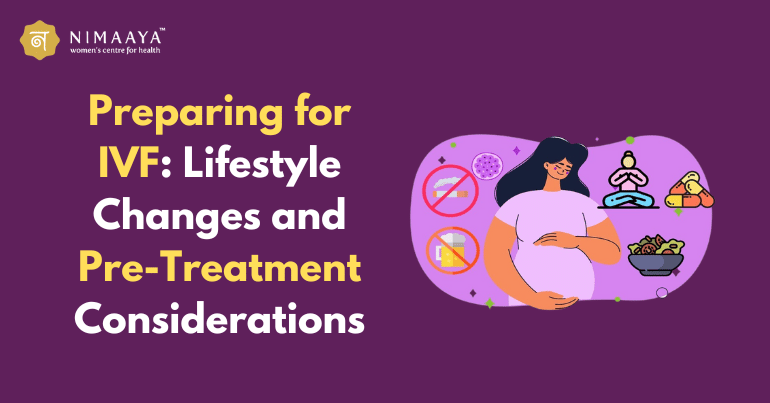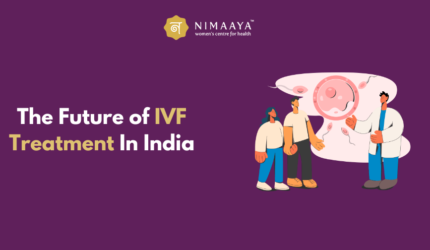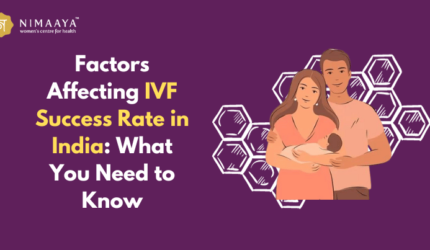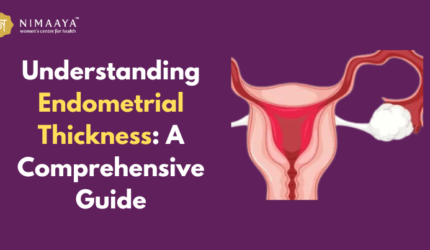Introduction:
Embarking on the journey to parenthood through In Vitro Fertilization (Test Tube Baby) can be both exhilarating and challenging. For couples considering or undergoing IVF treatment, thorough preparation is key to enhancing the likelihood of success. In this comprehensive guide, we will delve into crucial lifestyle changes and pre-treatment considerations that can significantly impact the outcome of the process of IVF. From a checklist of preparing for IVF to tips for both partners and insights into the process of IVF itself, we aim to empower couples on their quest for joyful parenthood.
Understanding the IVF Journey:
Before delving into the nitty-gritty of preparing for IVF implantation, it’s essential to grasp the fundamental aspects of the IVF process. Test tube baby involves fertilizing an egg with sperm outside the body, and the resulting embryo is then implanted in the uterus. While this may sound straightforward, the journey encompasses several stages, each demanding careful consideration.
IVF Preparation for Females
Females play a pivotal role in the IVF process, and IVF preparation for females is integral to its success. Lifestyle modifications, including maintaining a healthy weight, adopting a balanced diet, and incorporating regular exercise, can significantly enhance fertility. Understanding the hormonal changes associated with IVF and managing stress through relaxation techniques are crucial aspects of female IVF preparation.
IVF Preparation for Males
While females bear the physical burden of the IVF process, IVF preparation for males also plays a vital role in ensuring its success. Male fertility can be influenced by factors such as diet, exercise, and lifestyle choices. Incorporating foods rich in antioxidants, maintaining a healthy weight, and avoiding excessive heat exposure to the genital area are essential considerations for male IVF preparation.
Importance of Pre-Treatment Evaluations and Tests
Before embarking on the IVF journey, pre-treatment evaluations and tests are critical for assessing fertility status and identifying potential challenges. These evaluations provide valuable insights into hormonal levels, ovarian reserve, and overall reproductive health. Armed with this information, healthcare professionals can tailor treatment plans to address specific concerns, increasing the chances of a successful outcome.
IVF Preparation Checklist
The road to successful preparation for IVF begins with a meticulous IVF preparation checklist. This checklist acts as a roadmap for couples, ensuring that no crucial step is overlooked. From scheduling pre-treatment evaluations to understanding the process of IVF, every detail matters. Navigating through this checklist systematically provides a sense of control and confidence, essential elements during this emotional journey.
• Consultation with Fertility Specialists:
Schedule an initial consultation with experienced fertility specialists. This is the starting point for discussing medical histories, assessing fertility concerns, and formulating a personalized IVF plan.
• Medical and Genetic Testing:
Undergo comprehensive medical and genetic testing to identify any underlying issues that might affect the process of IVF. Addressing these concerns early can significantly impact the success of the treatment.
• Hormonal Assessments:
Ensure hormonal assessments for both partners to evaluate reproductive health. Understanding hormonal balance is crucial in tailoring medication protocols for optimal egg and sperm production.
• Nutritional Evaluation and Alternative Therapies:
Collaborate with a nutritionist to assess dietary habits. A nutritional evaluation helps create a fertility-friendly diet plan, ensuring the body receives the essential nutrients for reproductive health. Explore alternative therapies like acupuncture or meditation, which some studies suggest may positively impact fertility. Discuss these options with your healthcare team to ensure compatibility with your treatment plan.
Also Read: The Importance of Prenatal Care: Nurturing a Healthy Pregnancy
• Lifestyle Modifications and Physical Fitness:
Implement lifestyle changes to enhance overall well-being. This includes maintaining a healthy weight, quitting smoking, limiting alcohol intake, and managing stress through mindfulness practices. Incorporate regular exercise into your routine. Physical activity not only contributes to overall health but also helps manage stress, a crucial factor during the IVF journey.
• Financial Planning and Legal Considerations:
Prepare a detailed financial plan for the entire process of IVF. Understanding the costs involved, insurance coverage, and potential additional expenses can help couples make informed decisions without unexpected financial burdens. Explore legal aspects related to IVF, including consent forms, ownership of embryos, and any legal requirements specific to the region or fertility clinic. Clarifying these matters in advance prevents misunderstandings later in the process.
• Support System and Emotional Readiness:
Cultivate a strong support system. IVF can be emotionally taxing, and having a network of friends, family, or support groups can provide comfort and encouragement throughout the journey. Acknowledge and prepare for the emotional rollercoaster that often accompanies IVF. Consider counseling or support groups to navigate the emotional aspects of fertility treatment.
• Know Educational Resources and Review Clinic Policies:
Educate yourselves about the process of IVF. Attend informational sessions, read reputable sources, and ask questions during consultations. Knowledge empowers couples, easing anxieties and fostering a proactive approach. Familiarize yourselves with the policies and procedures of the chosen fertility clinic, such as appointment schedules, emergency protocols, and communication channels. Knowing what to expect promotes a smoother experience.
IVF Success Tips: Diet Matters
An often underestimated yet powerful factor in IVF success is the role of diet. A nutrient-rich, well-balanced diet can positively impact fertility for both partners. Including foods rich in vitamins, minerals, and antioxidants can boost reproductive health. Collaborating with a nutritionist to create a personalized IVF success diet plan tailored to individual needs is a proactive step toward optimizing the chances of conception. Here are some additional tips to harness the power of nutrition for optimal fertility:
• Focus on Fertility-Boosting Foods:
Incorporate foods that are known to enhance fertility. Consume a diet rich in whole grains, fruits, vegetables, and lean meats. Foods rich in omega-3 fatty acids, such as salmon and flaxseeds, can also contribute to reproductive health.
Also Read: Diet Chart for PCOD: A Comprehensive Guide
• Stay Hydrated:
Hydration is key to maintaining overall health, including reproductive health. Drinking an adequate amount of water ensures that your body functions optimally, supporting the intricate processes involved in fertility.
• Limit Processed Foods and Sugars:
Processed foods and excessive sugars can negatively impact hormonal balance and insulin sensitivity, which are crucial factors in fertility. Opt for whole, unprocessed foods to provide your body with the nutrients it needs.
• Consider Supplements:
While obtaining nutrients from whole foods is ideal, certain supplements can complement your diet and support fertility. Folic acid, vitamin D, and omega-3 supplements are commonly recommended, but it’s essential to consult with a healthcare professional before adding any supplements to your routine.
• Mindful Eating:
Adopting mindful eating practices can foster a positive relationship with food and reduce stress. Pay attention to hunger and fullness cues, savour your meals, and create a calm environment during eating times.
• Limit Caffeine and Alcohol Intake:
Excessive caffeine and alcohol consumption can affect fertility. Consider reducing your intake of caffeinated beverages and alcohol, as these substances may interfere with hormonal balance.
• Collaborate with a Nutritionist:
Consulting with a nutritionist who specializes in fertility can provide valuable insights into creating a personalized diet plan. They can tailor recommendations based on individual needs, taking into account specific nutritional requirements that support reproductive health.
By integrating these IVF success tips diet plan into your lifestyle, you are not only optimizing your chances of conception but also nurturing your overall health as you embark on this transformative path to parenthood.
Preparing for IVF Transfer and Implantation
The excitement intensifies as couples approach the critical phases of IVF – transfer and implantation. Maintaining a positive mindset, practicing stress-reduction techniques, and following prescribed medications diligently are imperative during these stages. Nurturing a supportive environment at home and communicating openly with the healthcare team can ease anxieties and contribute to a smoother process.
Conclusion:-
Preparing for IVF treatment is a multifaceted process that extends beyond medical procedures. It involves embracing lifestyle changes, adopting a positive mindset, and collaborating closely with healthcare professionals. By following a meticulous checklist for IVF preparation, understanding the importance of diet and exercise, and appreciating the significance of pre-treatment evaluations, couples can embark on their IVF journey with confidence. With the support of reputable fertility clinics like the Nimaaya IVF Center, the path to parenthood becomes a more navigable and hopeful one. As couples prepare for IVF, let this guide serve as a beacon of knowledge, empowering them to face the challenges and embrace the possibilities that lie ahead.











